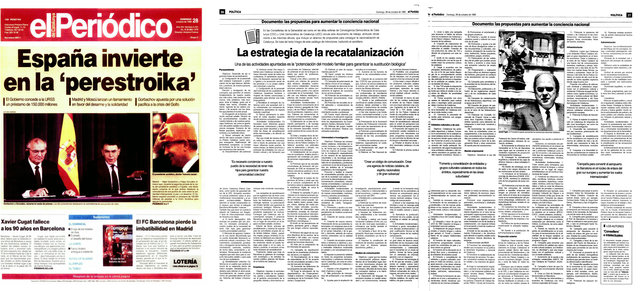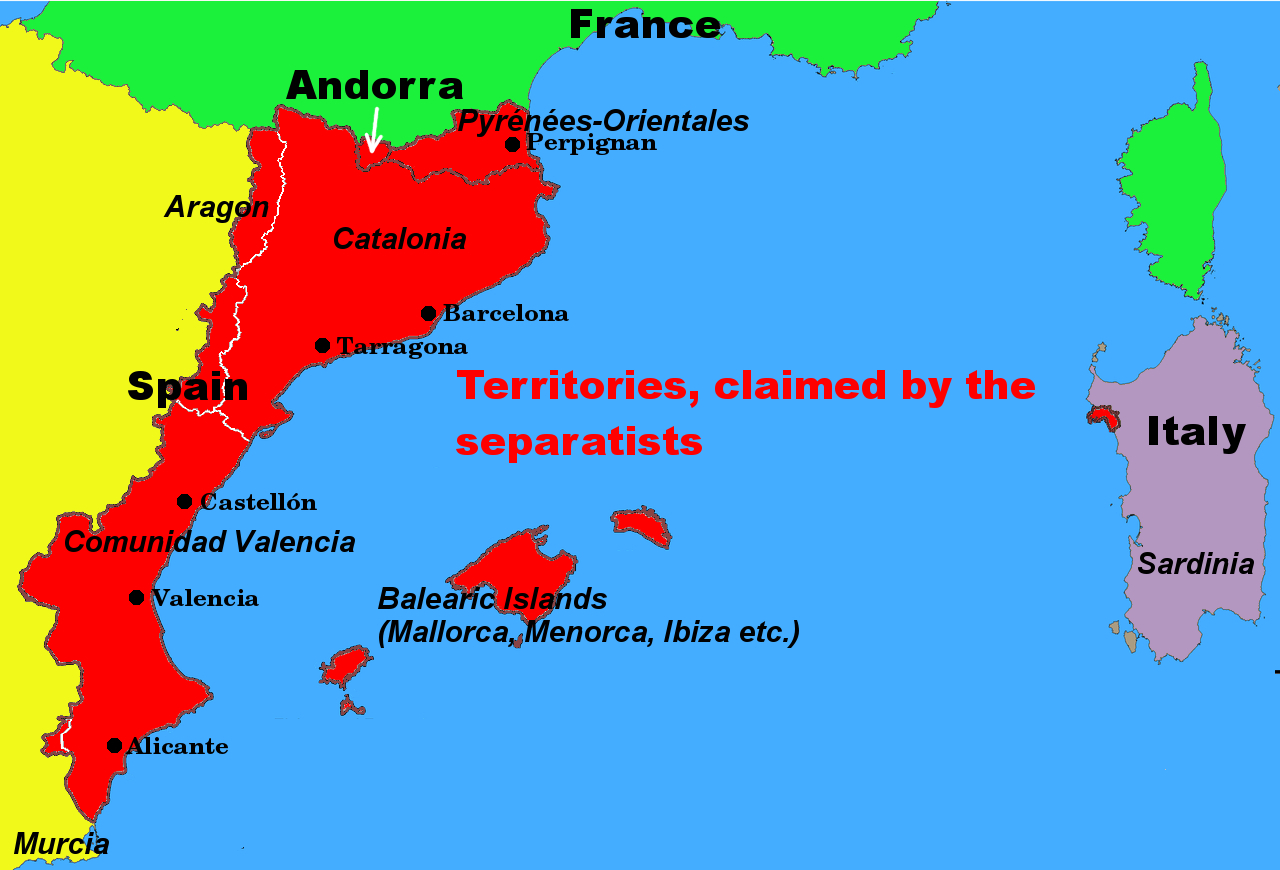Arrested in Sardinia
Puigdemont and the language police
September 24, 2021
Today's headlines: Puigdemont arrested in Sardina. Anyone familiar with the imperial claims of the separatists knows that he only imagines himself on „home“ soil. Parts of Sardinia are claimed by the separatists as „países catalanes“.
Yesterday's headlines: Language spying on pupils in the playground has not been enough for the separatists for a long time. With the activation of a plan for Catalan immersion at the universities, a blacklist for university professors who teach in Spanish is introduced at the same time. How is that related?
A look at the separatist map clearly shows what the Sepratists initially consider to be part of their dreamed-of empire. Besides Valencia and the Balearic Islands, parts of southern France and Alghero on Sardinia belong to it. In Alghero, Catalan is still spoken by a considerable part of the population. When I was there about 10 years ago, all the street signs were exemplary bilingual, Catalan and Italian. You would hardly find anything like that in bilingual Barcelona. Everything there is monolingual Catalan.
Puigdemont's motivation to bring Sardinia „heim ins Reich“ („bring back home“ Hitler's phrase incorporating Austria into the German Reich in 1938.) is unlikely to have been behind the visit to Italy.
On the one hand, he may have been aware of the risk of being arrested after all. On the other hand, it is clear that his arrest will massively disrupt the talks between Spanish President Sánchez and Catalan President Aragonès on the future of Catalonia, and the arrest in Italy is not the last word. It is quite likely that he will have to be released again in the legal wrangling over his immunity as a member of the European parliament.
Aragonès, as a partisan of the ERC, is under constant fire from hardcore separatists like Puigdemont with in his talks with Sánchez, and the movement for independence has lost momentum since then. One can't help but wonder whether Puigdemont's trip was a daring manoeuvre to relaunch the movement as a martyr.
The long-term planners of the separatists are therefore once again resorting to their wonder weapon of long-term indoctrination at educational institutions. They have realised that in 2017 the situation for their illegal independence referendum was precocious, which was probably one of the reasons why Puigdemont hesitated to actually declare independence. In their view, the strategy of recatalanisation requires even more education of the youth.
Only in this way can one understand that now only Catalan is to be spoken at the universities and that a blacklist is to be created for Spanish-speaking professors. The radicalisation of the youth in the sense of the separatists is directed towards the near future.
Peace talks, such as those currently taking place between Sánchez and Aragonès, are toxic for the separatists intentions.
| | | | Click here to subscribe or cancel your subscription |
Myths and deceptions of Catalan nationalism

Here you'll find the translation
The strategy of recatalanization
 1980 the Spanish journal "El Periodico" published a secret document about the strategy of the Catalan government. It shows in a frightening way the actual spiritual world of the separatist leaders.
1980 the Spanish journal "El Periodico" published a secret document about the strategy of the Catalan government. It shows in a frightening way the actual spiritual world of the separatist leaders.Now it is available in english translation.
Pancatalanism
the separatist's imperial claim
 The Catalan government exports the conflict into communities with Catalan population, supporting all efforts of the separatists including financial means to destroy Spain.
The Catalan government exports the conflict into communities with Catalan population, supporting all efforts of the separatists including financial means to destroy Spain. An important tool is the establishment of a language dictatorship that is not afraid to use the same means as Franco.
Separatist indoctrination

Click here to read the study
Language imposition and democracy

An essay in 6 parts on the potentially violent effect of language imposition containing contributions from South Africa, Catalonia, Ukraine and France.
go to part 1
Publications
 The title says: "Catalonia, a conflict is exported. Insights of a migrant"
The title says: "Catalonia, a conflict is exported. Insights of a migrant"Sorry, up to now, this book is only available in German. However, drop us a line, if you are interested to learn more Contact.
